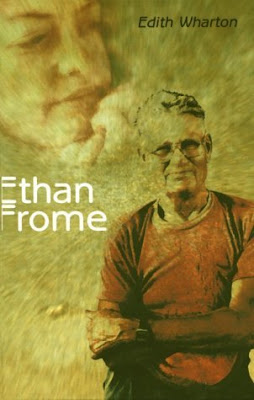Learning Targets: I can cite strong and thorough textual evidence to support analysis of what the text says explicitly as well as inferences drawn from the text, including determining where the text leaves matters uncertain.
I can determine two or more themes or central ideas of a text and analyze their development over the course of the text.
I can analyze the impact of the author's choices regarding how to develop and relate elements of a story or drama.
I can determine the meaning of words and phrases as they are used in the text, including figurative and connotative meanings; analyze the impact of specific word choices on meaning and tone, including words with multiple meanings or language that is particularly fresh, engaging, or beautiful.
In class: listening / reading to W. H. Auden's Musée des Beaux Arts and responding to analysis questions.
(class handout / copy below)
Musee des Beaux Arts
Musée des Beaux Arts
W. H. Auden
About suffering they were never wrong,
The old Masters: how well they understood
Its human position: how it takes place
While someone else is eating or opening a window or just walking dully along;
How, when the aged are reverently, passionately waiting
For the miraculous birth, there always must be
Children who did not specially want it to happen, skating
On a pond at the edge of the wood:
They never forgot
That even the dreadful martyrdom must run its course
Anyhow in a corner, some untidy spot
Where the dogs go on with their doggy life and the torturer's horse
Scratches its innocent behind on a tree.
The old Masters: how well they understood
Its human position: how it takes place
While someone else is eating or opening a window or just walking dully along;
How, when the aged are reverently, passionately waiting
For the miraculous birth, there always must be
Children who did not specially want it to happen, skating
On a pond at the edge of the wood:
They never forgot
That even the dreadful martyrdom must run its course
Anyhow in a corner, some untidy spot
Where the dogs go on with their doggy life and the torturer's horse
Scratches its innocent behind on a tree.
In Breughel's Icarus, for instance: how everything turns away
Quite leisurely from the disaster; the ploughman may
Have heard the splash, the forsaken cry,
But for him it was not an important failure; the sun shone
As it had to on the white legs disappearing into the green
Water, and the expensive delicate ship that must have seen
Something amazing, a boy falling out of the sky,
Had somewhere to get to and sailed calmly on.
Quite leisurely from the disaster; the ploughman may
Have heard the splash, the forsaken cry,
But for him it was not an important failure; the sun shone
As it had to on the white legs disappearing into the green
Water, and the expensive delicate ship that must have seen
Something amazing, a boy falling out of the sky,
Had somewhere to get to and sailed calmly on.
*******************************************************************************
Name_________________________________
thematic comparison between by Musée des
Beaux Arts by W.H. Auden and Ethan
Frome by Edith Wharton Part 1
Musée des Beaux Arts by W. H. Auden
Landscape with the
Fall of Icarus by Pieter Breughel
About suffering they were never wrong,
The old Masters: how well they understood
Its human position: how it takes place
While someone else is eating or opening a window or just
walking dully along;
How, when the aged are reverently, passionately waiting
For the miraculous birth, there always must be
Children who did not specially want it to happen, skating
On a pond at the edge of the wood:
They never forgot
That even the dreadful martyrdom must run its course
Anyhow in a corner, some untidy spot
Where the dogs go on with their doggy life and the
torturer's horse
Scratches its innocent behind on a tree.
In Breughel's Icarus, for instance: how everything turns
away
Quite leisurely from the disaster; the ploughman may
Have heard the splash, the forsaken cry,
But for him it was not an important failure; the sun shone
As it had to on the white legs disappearing into the green
Water, and the expensive delicate ship that must have seen
Something amazing, a boy falling out of the sky,
Had somewhere to get to and sailed calmly on.
Accompanying questions for
Musée des Beaux Arts. Use specific text to support your responses.
1.
What
did the “Old Masters” understand about suffering?
__________________________________________________________________________________________________________________________________________________________________
2.
What do the contrasting examples in the first stanza seem to suggest
about the “human position” of suffering? Support your answer using details from
the first stanza. ________________________________________________________________________________________________________________________________________________________________________________________________________________________________________________________________________
3 According to the speaker, how does
Brueghel’s painting depict the reaction to Icarus’ disaster? Explain using
specific details from the second stanza.
_______________________________________________________________________________________________________________________________________________________________________________________________________________________________________________________________________________________________________________________________________________________________________
4. How does Brueghel’s The Fall of Icarus seem to reinforce speaker’s ideas about suffering?
Support your answer using details from the poem and from the painting shown
above.
________________________________________________________________________________________________________________________________________________________________________________________________________________________________________________________________________________________________________________________________________________________________________
4. In your opinion, why did Auden write
this poem? (Do not use “I”!) In your response explain what he wishes to convey
and why.
________________________________________________________________________________________________________________________________________________________________________________________________________________________________________________________________________________________________________________________________________________________________________
5. How does Auden use imagery to help
convey his ideas about suffering?
Give three specific examples and identify the type of imagery.
(auditory, visual, olfactory, sensory, gustatory)
________________________________________________________________________________________________________________________________________________________________________________________________________________________________________________________________________________________________________________________________________________________________________
6. Find two examples of irony and explain
how they add to your understanding and appreciation of the poem.
________________________________________________________________________________________________________________________________________________________________________________________________________________________________________________________________________________________________________________________________________________________________________











